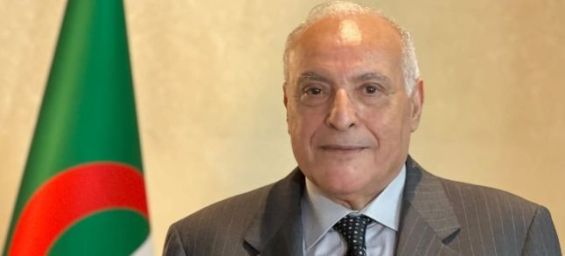After weeks of silence, Algeria has finally addressed the elephant in the room. The eastern neighbor officially commented on the new rapprochement with Spain, marked by the appointment of a new ambassador to Madrid, after a 17-month unofficial breakup.
«There is a change in Spain’s position on the Western Sahara issue», the Algerian Foreign Minister Ahmed Attaf told Al Jazeera's Atheer platform.
«The speech of the head of the Spanish government at the UN General Assembly gave us the green light to review our relationship with Spain», he said. «Spain has thus aligned itself again with the European position. This is what we have always demanded», said the senior diplomat.
For the record, within the EU, Germany, Belgium, the Netherlands, France, Portugal and other Central European countries have all supported the Moroccan autonomy initiative.
Ahmed Attaf said he was convinced that «there has really been a change» on the part of the Spanish government on an issue «of great importance for us. We must not forget that Spain is the State that colonized Western Sahara and therefore has responsibilities towards Western Sahara», he argued. He recalled that his country «did not accept» that Pedro Sanchez supports the Moroccan autonomy plan for Western Sahara.
A media campaign
The Algerian FM’s explanation is similar to that relayed by media following Pedro Sanchez's address at the UN General Assembly on September 22. «He abandons his support for the Moroccan 'Autonomy Plan'. Sanchez gives up on the Makhzen. A real slap in the face of the Moroccan regime», wrote Algerian daily L’Expression. «Western Sahara : Pedro Sanchez turns against the Makhzen», another Algerian media wrote.
In September 2022, President Abdelmadjid Tebboune said that «Spain is starting to readopt the European decision on the question of Western Sahara».
A few weeks after these headlines, Pedro Sanchez had ruled out, to the great dismay of the Polisario and Algeria, any revision of his support for the Moroccan autonomy plan for Western Sahara through the government agreement with Sumar and Catalan and Basque independentist groups.
This was followed by the statements of Spanish Foreign minister Jose Manuel Albares, on December 14 in Rabat. «Spain’s position regarding the Sahara issue has not changed. It is the same as the one already expressed in the Joint Declaration, adopted on April 7, 2022, and the Declaration sanctioning the 12th session of the Morocco-Spain High Level Meeting in February 2023», he stressed.
Indeed, the Joint Declaration published at the end of the talks between King Mohammed VI and Pedro Sanchez, states that «Spain considers the Moroccan autonomy initiative, presented in 2007, as the most serious, realistic, and credible basis for resolution of this dispute».
Algeria had bet on the arrival of a government led by the Popular Party to restore its relations with Spain, especially since the leader of this formation had condemned, publicly and on several occasions, the support of Pedro Sanchez to the Moroccan autonomy plan for the Sahara.





 chargement...
chargement...













